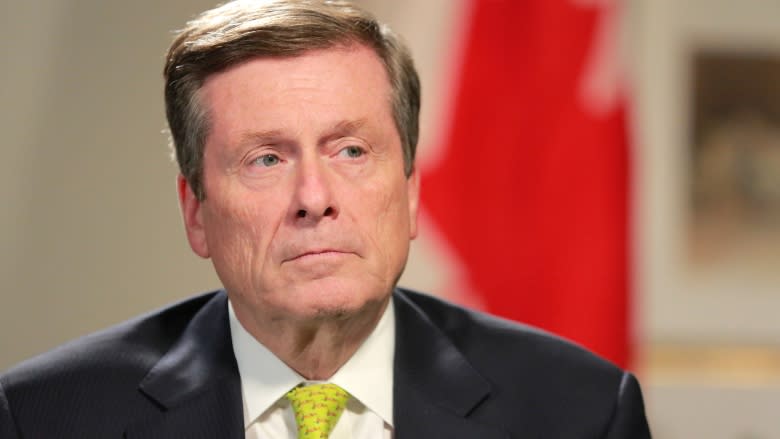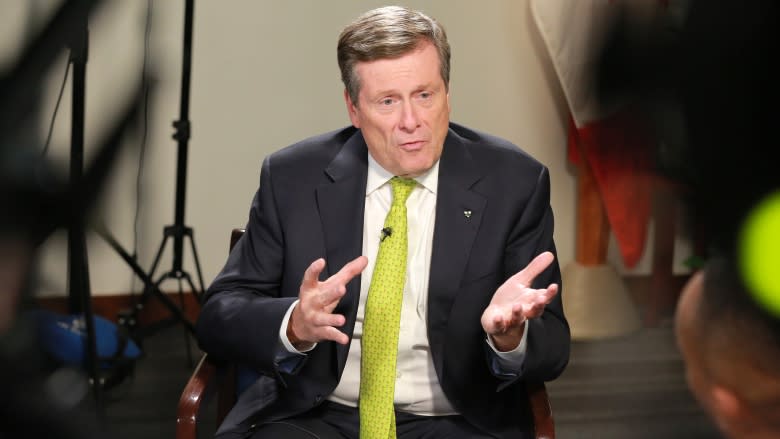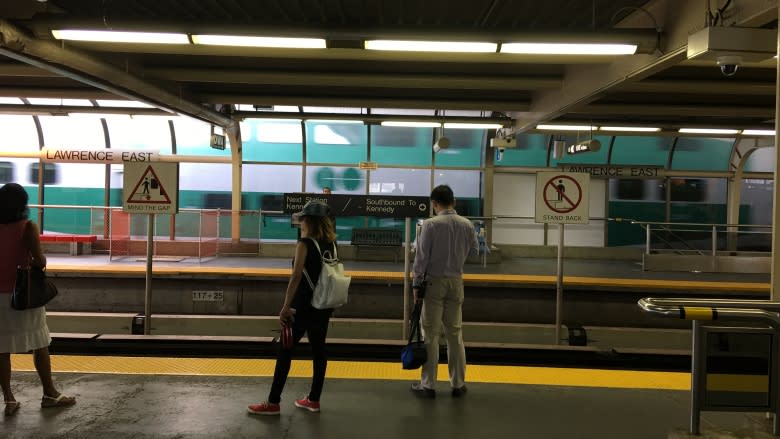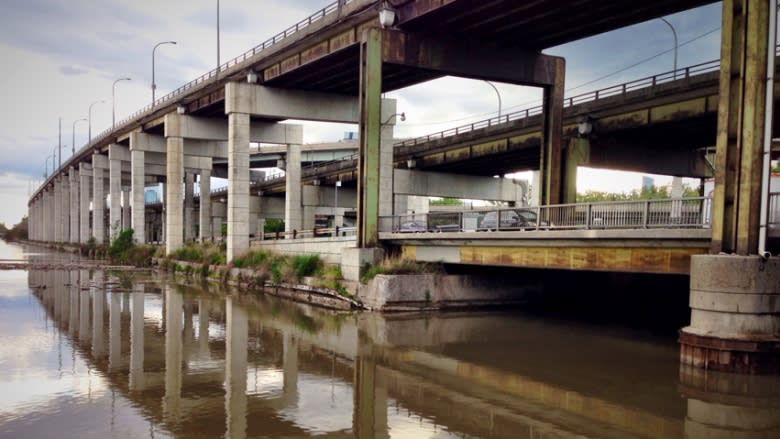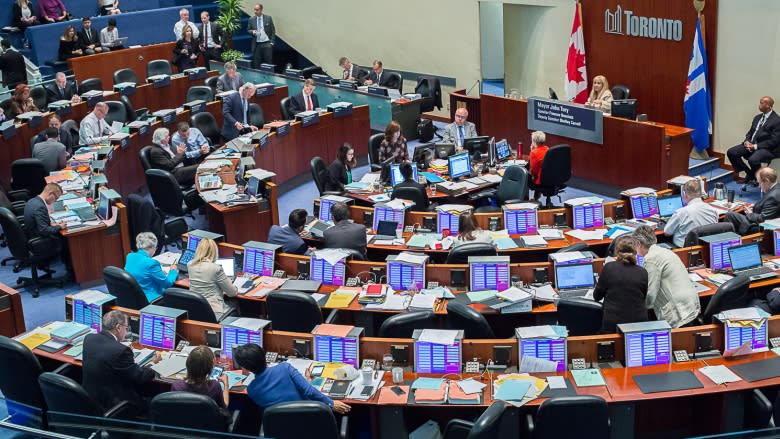1 year out: Is Mayor John Tory making good on his campaign promises?
Mayor John Tory swept into office on a promise of building "One Toronto," a less-divided city with more transit options, fewer crippling traffic jams and a council that gets things done.
Three years into his term there have been some improvements, although Tory admits things don't always move as fast as he'd like.
"Things move slowly. I'm not sure there is always the sense of urgency there should be about these kinds of projects," Tory told CBC Toronto during a one-on-one interview in the protocol lounge outside of his office.
Early polling suggests Tory is on track for re-election, however he has faced criticism at city hall for his support of the Scarborough subway and expensive "hybrid" rebuild of the eastern Gardiner Expressway.
His vow to forge a more amicable relationship with Queen's Park has also gone through a rough patch — although council has largely been in his corner amid the fighting with Premier Kathleen Wynne's government.
Meanwhile, major social issues that weren't central to Tory's campaign have come to the fore during his time in office, including the opioid overdose crisis, questions about how police interact with racialized groups (Tory sits on the police services board), and how the city will keep its crumbling social housing running.
Mitchell Kosny, associate director of Ryerson University's School of Urban and Regional Planning, says Tory has been a good manager at city hall throughout the tribulations, but he hasn't emerged as a strong leader.
"The job of the mayor is to lead," Kosny told CBC Toronto.
Kosny suggests this test to prove it: walk down Yonge Street and ask someone what Tory's vision for Toronto is. He doesn't think many would have an answer.
"It's not good enough," he said.
So far, only Doug Ford has said he'll run against Tory in the 2018 municipal election, although more potential challengers could declare their intentions once nominations open in May. Until then, Tory will be measured against the goals he set for himself. Here's a look at how he's doing on some.
SmartTrack
Tory recently held a week of consultations about his SmartTrack plan, noting at one point that many still don't understand the basics of the plan that will utilize parts of the existing GO Transit network to provide more commuting options for people across the city.
Tory campaigned on a 22-stop plan, however that's been reduced to just six stations and there are questions about whether or not Metrolinx will approve a stop at Lawrence East.
The mayor says the plan is moving along, although his campaign promise to have it completed in seven years has now been changed to the early 2020s.
"You can't name me one [major transit project] that gets done overnight," Tory told CBC Toronto's Dwight Drummond when asked about the changing timeline.
"It's moving along … SmartTrack will happen faster than any of the other transit projects," he said.
The plan requires the electrification of the GO Transit lines, something the province is leading. Meanwhile, the city is working on designing the stations.
Tory says he knows people are frustrated with the pace of transit construction, but says those people should direct their anger at past councils that did little to improve the city's system.
Gridlock
Tory has launched a series of traffic blitzes to crack down on problem parkers snarling rush hour commutes, but he says he's also looking for more options including the power to deploy traffic wardens. That move would require permission from Queen's Park.
He calls dealing with traffic a "slow battle," but it's difficult to see how the city will ever win.
"For every day that you do something to make the traffic better the city grows," Tory said.
"But I'm going to keep at this, I'm not shying away from this at all."
The city's other steps include deploying high-tech systems that will read the traffic and change signals accordingly, while also partnering with the traffic app Waze to get more information about what drivers are facing.
"We never had the data before," said Tory.
One of the mayor's biggest road-related controversies stems from the vote to approve a "hybrid" version of the Gardiner Expressway – a middle-ground said to preserve the most development space, but also the most costly of three options put before council. Some wanted the highway torn down and replaced with a ground-level boulevard, others wanted it to be maintained in its current form.
"You know you might say, 'hey we got the best of both.' I'm going to say we got the absence of anything," Kosny said.
Bridging the divide
The night he was elected in 2015, Tory vowed to move council not right or left, but forward — something there's no real metric for. Those on council's left have criticized the mayor's budget priorities, while on the right, some have argued the city's still spending money where it shouldn't be.
Throughout, Tory has staked out what appears to be middle ground and kept city hall debates far calmer than they had been during the tenure of former Toronto mayor Rob Ford.
"This place had been in chaos," Tory said.
There are still battles that seem to pit downtown against suburban councillors against one another, but the mayor says he's committed to ending this.
Torontonians, he said, "know for one thing I'm certainly not stirring it up and trying to sort of get headlines by pitting one part of the city against the other, or one group against another," he said.
"I think they can see that I'm actually trying to bring the city together."

